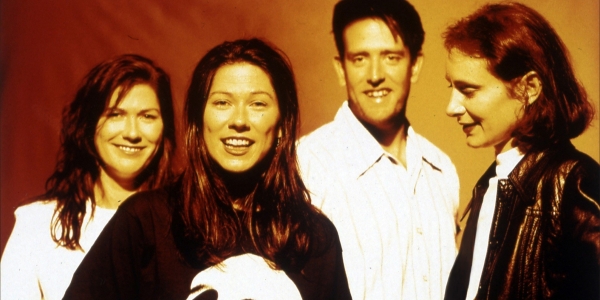“Basically, we’d have to become a large scale promoter to be that sustainable,” says Music Victoria CEO Patrick Donovan. “And we’re a peak body, and we can’t compete against the interests of our members. Every other state has a government-funded peak body for live music. So what we really need is to have the membership that indicates to the government how important live music is,” he says.
Donovan left his job as music writer for The Age to become Music Victoria’s inaugural CEO. “I suppose my expectations at the time were that I was excited about celebrating and promoting Victorian music,” Donovan says. “I was getting a bit sick of over-hyped international musicians coming out here, when we had such fantastic local musicians already.”
It’s been a hard, but productive road for Donovan and Music Victoria since its formation. Music Victoria’s formation coincided with concern over the future of the live music scene. In early 2010 20,000 people took to the streets of the Melbourne CBD to protest against the threat to live music posed by draconian liquor licensing laws. Music Victoria was an active participant in the government-sponsored roundtable established to find a way through that particular bureaucratic malaise.
But Music Victoria has also cast its net further than licensing issues, identifying a range of initiatives that, fundamentally, improve the lot of the average local musician. “What’s been exciting is that music is now represented at the negotiation table,” Donovan says. “I’m on a few boards – which actually takes up about half my time – and the interests of the live music industry are now being listened to, and taken into account when decisions are made.”
Donovan has a long list of successful outcomes for the live music industry. “There’s a lot that’s been achieved, from the Music Guide that we launched – and there’s now an app for it – to the fact that there are now cool bands being put on at the MCG, and we also partnered with the City Of Melbourne for the AirPlay project, where we have local bands playing at the airport. And last year as part of the council elections we organised the first ever local council survey, so for the first time live music was a major part of the council election agenda,” Donovan says.
And then there are the practical outcomes for musicians – what Donovan describes as the “hip pocket” benefits that make a struggling musician’s live that bit financially less problematic. “We’ve now got parking permits for musicians, what we call ‘rock star parks’, and we’ve also cut deals with Virgin and Qantas so that musicians don’t have to pay excess baggage fees when they’re taking gear on the plan,” Donovan says. “We’re also involved in discussions about the building code, including recognising cultural clusters the ‘agent of change’ principle. We’re also really proud of what we’ve done with the Face The Music conference, where we’ve managed to get some really great speakers in the last couple of years.”
Because independent music has tended to construct its identity as a burr on the side of the status quo, political agitation has historically been from outside of mainstream institutions – the result, unfortunately, has been more rhetoric than practical achievements. Donovan says he’s learnt you have to work with the system to succeed. “I’ve learnt that you have to work from the inside,” Donovan says. “There are a lot of people who have a misperception of the music industry. They grew up listening to the music in the 1980s when it seemed there was a lot of money in the industry. We’ve had to remind them that it’s actually made up a lot of small businesses, all of whom aren’t earning a lot of money.”
While emotive descriptions of artistic success are nice, it’s dry statistics that attract the attention of hard-nosed bureaucrats. “We need statistics to hep the cause, to demonstrate just how important live music is. We’ve recently drawn up a matrix that shows how the benefits of live music relate to ten different portfolios in government, so it’s not just something that’s of interest to the arts area,” Donovan says. Donovan notes that following the recent State government Cabinent reshuffle, Michael O’Brien – who as Minister for Consumer Affairs convened the roundtable on the future of the live music industry in the aftermath of the SLAM rally – is the Treasurer. “It’s good to have a music fan in that role,” Donovan says.
Currently, Music Victoria’s membership rests around the 650 mark; Donovan aims to get that figure over the 1,000 mark. “We’re doing more target marketing – sometimes the specific messages can get lost with a general push,” Donovan says. “We still need to get the message out to musicians that they can save thousands of dollars if they join – we have to explain that value proposition. For venues we’re doing a lot of work with law reform, and for fans, anyone who cares for music, if you want to be able to see any type of music, any day of the week, then it’s a small price to pay.”
BY PATRICK EMERY







